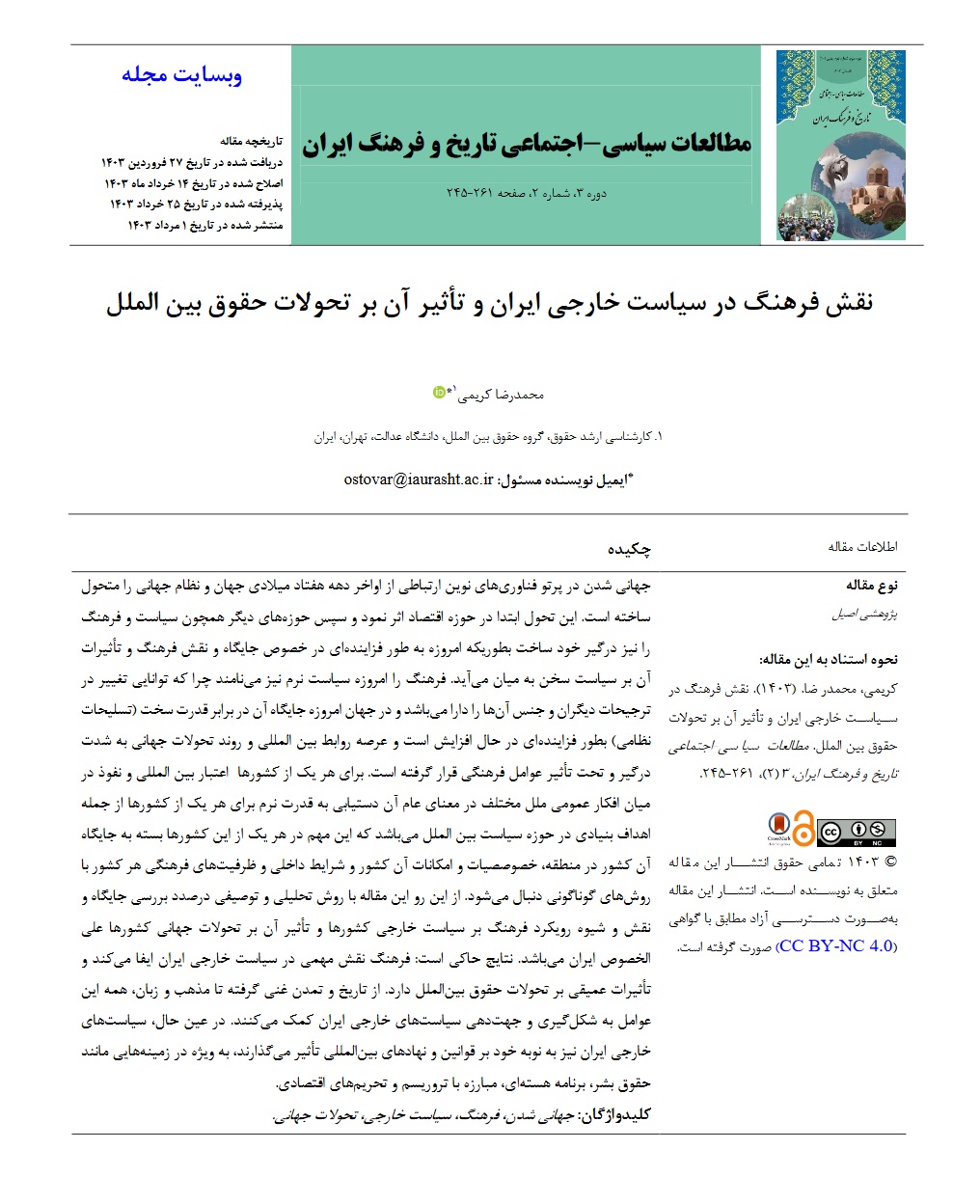The Role of Culture in Iran's Foreign Policy and Its Impact on International Law Developments
Keywords:
Globalization, Culture, Foreign Policy, Global DevelopmentsAbstract
Globalization, driven by modern communication technologies, has transformed the world and the global system since the late 1970s. This transformation initially impacted the economic sphere and subsequently extended to other domains such as politics and culture, to the extent that discussions increasingly focus on the role and position of culture and its effects on politics today. Culture is now also referred to as soft power because it has the ability to influence and change the preferences and behaviors of others. In today's world, the significance of culture is increasingly rising in comparison to hard power (military capabilities), and the field of international relations and the course of global developments have become deeply involved with and influenced by cultural factors. For each country, international credibility and influence among the public opinions of various nations, in its broadest sense, mean achieving soft power, which is one of the fundamental objectives in the realm of international politics. This goal is pursued in each country depending on its regional position, characteristics, resources, domestic conditions, and cultural capacities, using various methods. Therefore, this article, using an analytical and descriptive approach, seeks to examine the role, position, and method of cultural approaches in the foreign policy of countries and their impact on global developments, particularly in the case of Iran. The results indicate that culture plays a significant role in Iran's foreign policy and has profound effects on developments in international law. From a rich history and civilization to religion and language, all these factors contribute to shaping and directing Iran's foreign policies. At the same time, Iran's foreign policies, in turn, impact international laws and institutions, particularly in areas such as human rights, the nuclear program, combating terrorism, and economic sanctions.
Downloads








